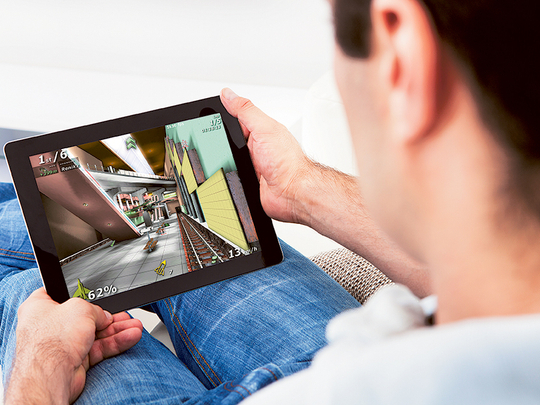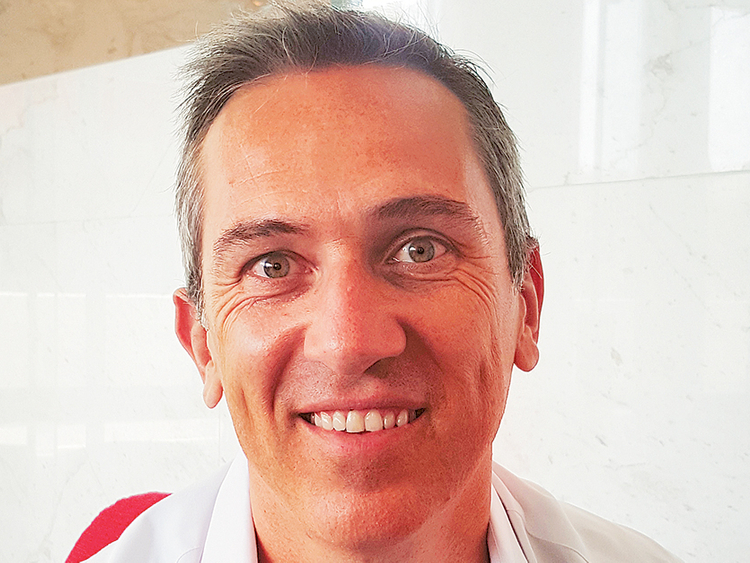
Dubai: Gameloft, a leading publisher of digital and social games, said that Arabic games are gaining traction as more small developers from the region are coming to the main stage.
“There is a lot of innovation in the region and there are lots of small game developers in the Apple app stores. There is a huge potential for them [regional developers] but they need a bigger structure to explode at the global level,” Yann Fourneau, vice president for sales and marketing, southern Europe and MEA at Gameloft, told Gulf News.
With the growth in smart devices like smartphones and tablets, he sees room for more in-app purchases as they are cheaper than buying games in other platforms.
Christine Arrington, senior games analyst at IHS Technology, said that smaller games played on smart devices are growing very fast and will account for more than half the industry’s sales total by 2017.
According to IHS Technology, the industry landscape is changing very fast due to the accelerated spending on apps. The market will touch $100 billion by 2017.
Jayant Bhargava, partner at Strategy& (formerly Booz & Company), said that in the next two to three years, by 2018, mobile is expected to cross the console market in the region. In developed markets, consoles have much higher penetration rates compared to the emerging markets.
He said the main reason is that the number of fixed broadband customers is much smaller than mobile broadband users in most of the emerging markets.
Tuong Huy Nguyen, principal research analyst at Gartner, said that smart devices are affordable and that are shaping the entertainment for a new generation of players.
According to IHS, smart devices (smartphone and tablets) will become the biggest platform by 2017 for games spend, with digital markets already expected to account for 80 per cent of gaming sales by end of the year, up from 28 per cent in 2008.
And as the future for gamers increasingly moves from the days of marathon couch sessions to gaming on the go, Nguyen said that mobile phones are the next frontier for video games.
In a few years’ time, mobile devices will be more advanced than the consoles.
In the past, Nguyen said that if you want play games, you need invest in hardware and then on games. That is why people over 30 used to spend so much to play games. With mobile phones, even grandmothers and grandfathers can play social and casual games on the go.
Gameloft has launched nine titles this year globally and in Arabic and plans to launch 20 titles this year. Last year, it launched 12 titles.
The nine titles are Dragon Mania Legends, Puzzle Pets, Immortal Odyssey, Age of Sparta, Dungeon Hunter 5, Battle Odyssey, Ice Age Avalanche, Magna Memoria and Siegefall.
Fourneau said that Dragon Mania Legends, Dungeon Hunter 5 and Siegefall are currently among the company’s best-selling titles.
The French company sees around 20 per cent growth in revenues this year compared to €300 million it earned last year.
Gameloft was the worldwide number one company on iOS and Google Play combined by downloads, according to App Annie’s first half 2015 index for games.
“We get more downloads from Android platform but the revenue comes from the Apple platform,” Fourneau said.
He said that the EMEA region contributes 30 per cent growth to the company. The biggest markets are the US and China.
In the region, he said that it is Saudi Arabia and the UAE. Even though the population in Saudi is huge, the revenue gap between Saudi Arabia and the UAE is small.
In the first half of this year, the company sales rose 15 per cent year on year to €127.4 million.
“We expect to open a studio to develop games by end of next year and attract local developers,” he said.
Monthly active users averaged 163 million as of second quarter and daily active users averaged 19 million.
Fourneau said that smart devices platform is growing very quickly as it reaches many market segments.











